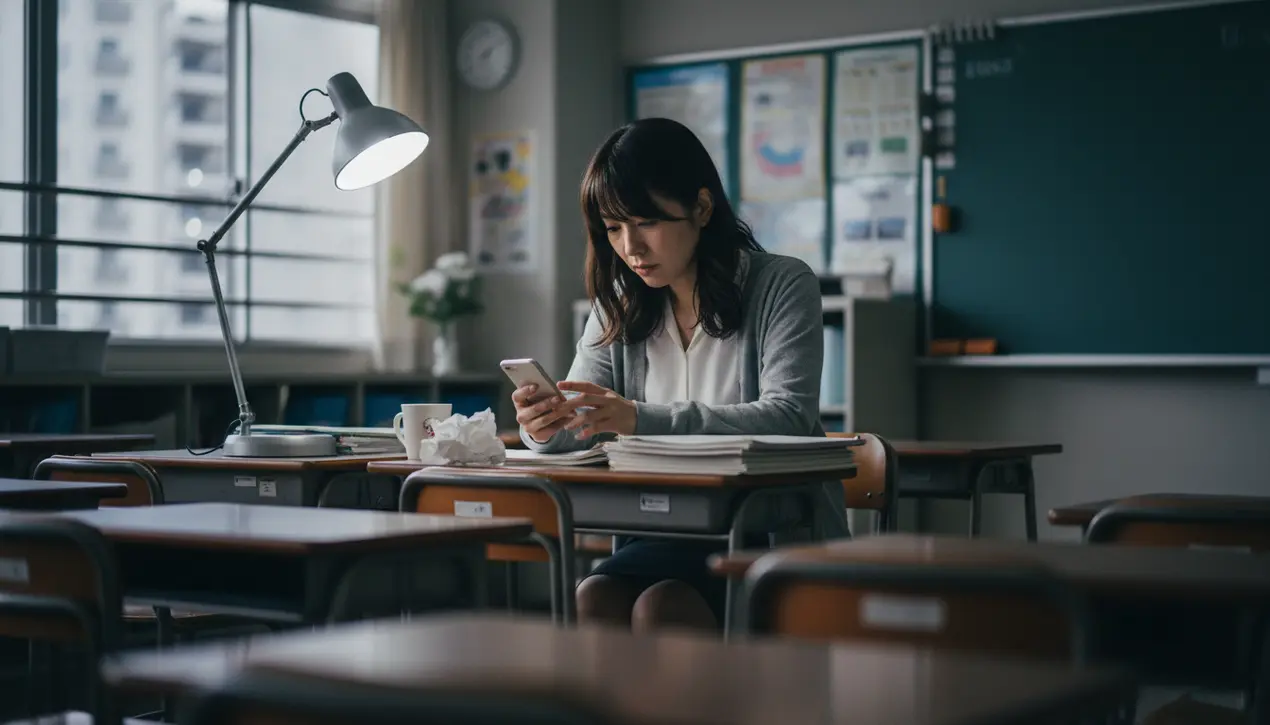
OthereducationSchool Reforms
Tokyo Plans Guidelines to Curb Parental Harassment of Teachers
LA
Laura Bennett
3 hours ago7 min read
In the quiet, orderly classrooms of Tokyo, a silent crisis is unfolding, one that speaks volumes about the shifting pressures on modern parenting and the educators who bear the brunt of its anxieties. When the cherry blossoms fail to bloom on cue or a lunch menu falls short of expectations, teachers in Japan know what to expect: a barrage of late-night emails, angry phone calls and, increasingly, a sense of despair.This phenomenon, often termed 'monster parents' or parental harassment, has escalated from isolated complaints to a systemic issue so pervasive that the Tokyo Metropolitan Government is now drafting official guidelines intended to protect educators and establish clear boundaries around what schools can reasonably be asked to do. I've spoken with several teachers who describe the emotional toll as a slow burn; it starts with a politely worded but persistent query about a child's seat assignment and can spiral into demands for changes to the curriculum or accusations of unfair treatment that arrive via email long after sunset, blurring the lines between professional responsibility and personal invasion.This isn't merely about overzealous advocacy; it's a symptom of a deeper societal pressure cooker where intense academic competition and shrinking family sizes have concentrated parental ambition onto a single child, transforming the parent-teacher relationship from a partnership into a high-stakes negotiation. One veteran educator, who asked to remain anonymous for fear of reprisal, shared with me the exhaustion in her voice, describing how a parent insisted on a daily report of their child's social interactions, a request that added hours to her unpaid workweek and chipped away at her morale.The draft guidelines, released this month, represent a crucial first step in validating these experiences, moving beyond informal school-level policies to a metropolitan-wide acknowledgment that the professional well-being of teachers is foundational to educational quality. Historically, Japan's culture of respect for authority has insulated teachers to some degree, but the digital age has dismantled those traditional barriers, creating a 24/7 channel for criticism that leaves little room for respite.Experts in educational sociology point to similar trends in South Korea and parts of China, where academic pressure is equally intense, suggesting this is a regional challenge exacerbated by hyper-connectivity. The potential consequences of inaction are stark: accelerated teacher burnout, a growing shortage of qualified professionals willing to endure the harassment, and ultimately, a decline in the very educational standards parents are so desperate to uphold.The Tokyo plan, while a welcome intervention, also raises complex questions about enforcement and cultural change—can a set of guidelines truly recalibrate deeply ingrained behaviors, or is a broader conversation about the purpose of education and the nature of childhood success required? As one soft-spoken middle-school teacher told me, reflecting a sentiment I heard again and again, 'We entered this profession to inspire children, not to manage the anxieties of their parents. ' Her story, and the stories of countless others like her, underscore that this policy effort is not about creating adversarial relationships, but about rebuilding a foundation of mutual respect, ensuring that schools remain sanctuaries for learning rather than arenas for parental grievance.
#featured
#Japan
#education system
#parental harassment
#teacher welfare
#school guidelines
#Tokyo
#social issue
Stay Informed. Act Smarter.
Get weekly highlights, major headlines, and expert insights — then put your knowledge to work in our live prediction markets.
Related News
Comments
Loading comments...
© 2025 Outpoll Service LTD. All rights reserved.